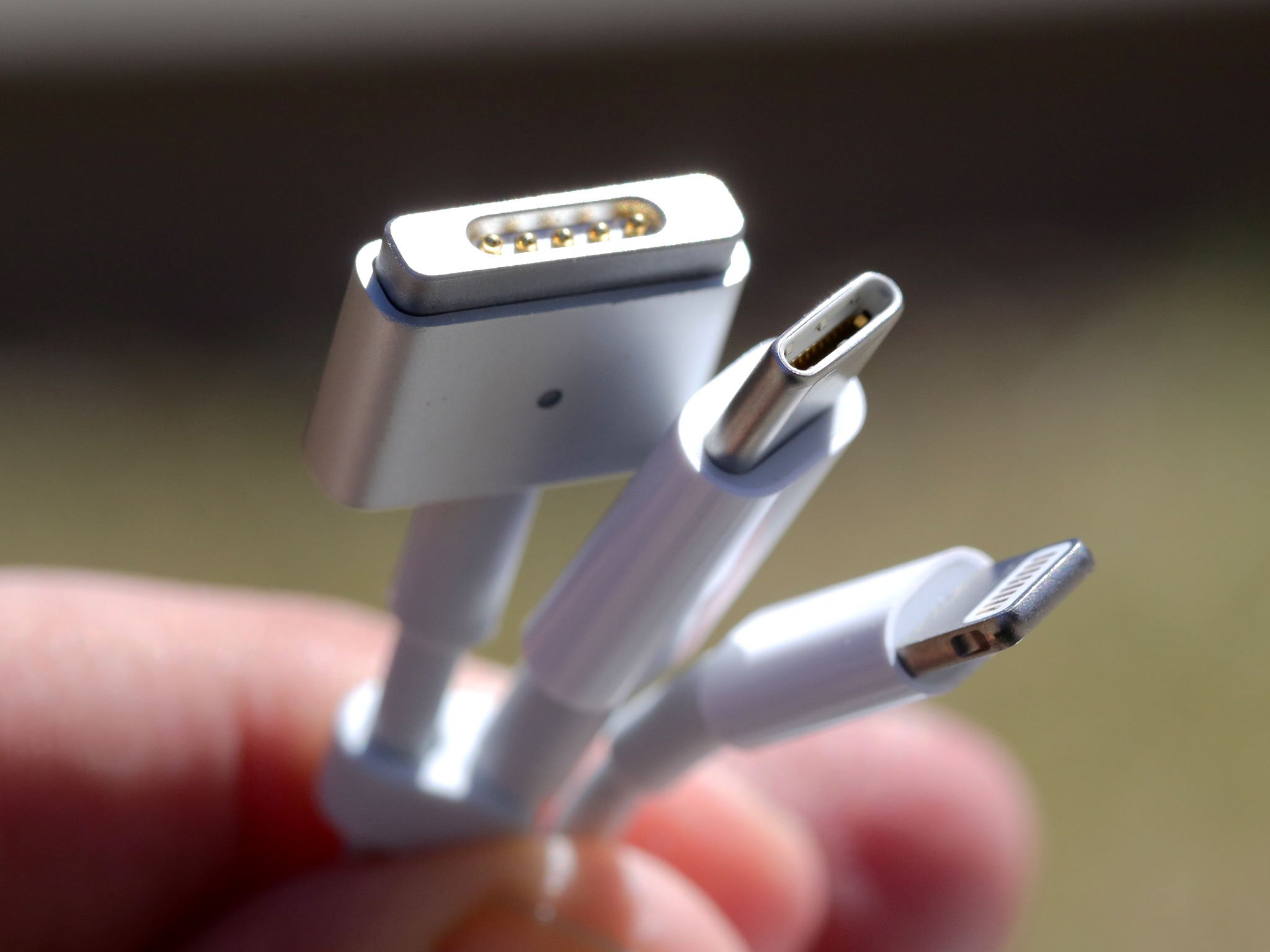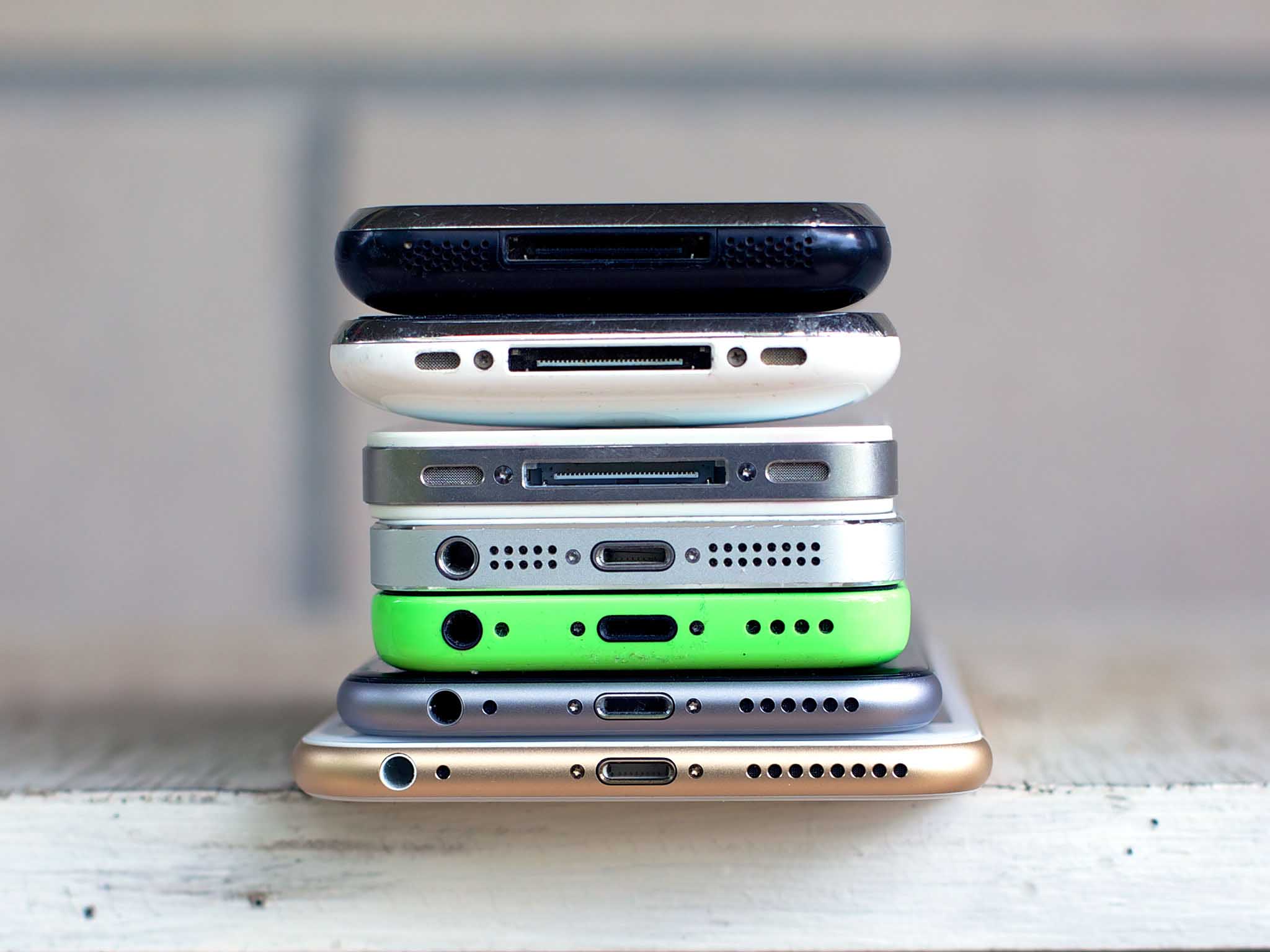Why iPhone probably won't go USB-C

The one cable to rule them all. That was and is the promise of USB-C. In large part, it's delivered. From the single USB-C port on the 12-inch MacBook, to the two or four hybrid USB-C / Thunderbolt 3 ports on the MacBook Pro (2016 and later), to the iMac Pro, Apple is including the interconnect on all its recently updated computers. But not on iPhone or iPad, where Apple has stuck to its own, proprietary Lightning connector.
That's a stark contrast to the rest of the mobile industry, where USB-C has become almost standard on phones and tablets.
Why didn't Apple use USB-C instead of Lightning?
That one's easy. There was no USB-C back in 2012 when Apple shipped Lightning on iPhone 5. It didn't exist. The spec wasn't even finalized until August of 2014.
Why didn't Apple just wait for USB-C, then?

Assuming Apple could count on USB-C being finalized and shipping without any further delays, it would still have cost them years and literally made everything from iPhone 5 to iPad mini and iPad Air impossible to ship the way Apple wanted to ship them.
Let's rewind. When the original iPhone was introduced, it was with a 30-pin Dock connector. That was a proprietary connector Apple built for iPod back in 2002, but iPod was so popular and ubiquitous, and the 30-pin so capable for its time, that it was more of a feature than failing.
As the years went on, though, and the 30-pin Dock connector became increasingly outdated, Apple needed something better. There's only so many times you can rewire pins for new connection standards like HDMI, and engineer around something as massive as the Dock connector, after all.
And, back then, USB was still a mess. There was standard USB-A, miniUSB, and microUSB. The latter two especially offered advantages of size, since they were tiny and tinier, but that wasn't enough. Apple wanted something modern, something that could carry them another 10 years, not just a stop gap they'd have to replace and then replace again.
Master your iPhone in minutes
iMore offers spot-on advice and guidance from our team of experts, with decades of Apple device experience to lean on. Learn more with iMore!
So, years before USB-C was even a glimmer in nerd's eyes, Apple began work on Lightning. It was designed to be symmetrical and less frustrating to plug in, purely digital, so it could adapt to new standards and be more future-proof, and tiny so Apple could build the next-generation devices they wanted to build.
And that didn't just include iPhone and iPad. It included everything from Magic Keyboard to Siri/Apple Remote.
What about now, though? Could iPhone be switched to USB-C now?
Apple can do anything with iPhone it wants, including switching it to USB-C any time they want. There are a few things to consider, though.
- USB-C is physically bigger than Lightning. It's not a lot bigger but when you're fighting for every millimeter of space, bigger is the opposite of better. (Just look at how vendors like Samsung have to shove the port off-center just to get it to fit below the screen.) Apple didn't ditch the 3.5mm headphone jack to to waste that space on USB-C. Here's a diagram showing the difference, rendered by Josh Flowers:

- USB-C is a standard which, while more open and compatible, is also less flexible. With Lightning, Apple can do whatever it wants, whenever it wants. That means, if some cool new technology emerges next year, Apple can implement it immediately without having to wait for a standards body to to come to an agreement ... or not ...
- USB-C would require another port change for customers. Many people weren't very happy with the last one, and Lightning was 10 years after Dock. It's only been 6 years since Lightning. And in that time, with hundreds of millions of devices on the market, Lightning has become ubiquitous enough that everyone has it, typically in abundance.
- We're moving into a wireless era. Rumor has it Google has already considered ditching the USB-C port in the Pixel. It may not be long until charging, at least for phone-sized devices, is purely through inductive Qi pads, and data is purely over Bluetooth and Wi-Fi.
So, USB-C would have to offer considerable advantages for Apple to want to go through another connector transition, both internally and for customers.
Wouldn't convenience be a considerable advantage?
It would! But it wouldn't be more convenient for most people. It would be less.
Personally, I would love USB-C everywhere. It would mean I could travel with just USB-C cables and not have to care which device needed charging when. And if I lost or damaged one cable, I could just use another without a second thought to what type it was.
But I'm not everybody and I'm certainly not most people. In fact, I'm the only one in my extended family that has USB-C on anything. When you leave the tech-niche and go mainstream, most people have very little USB-C still and a lot of lightning, and making them switch connectors again would be the opposite of convenient.
Isn't Lightning just a way for Apple to control accessories and tax accessory makers?
Apple certainly enjoys control and is good at making a profit. On the other hand, when you look at just how problematic USB-C was at launch, in terms of defective and destructive cables flooding the market, it made some level of control and quality assurance beneficial.
There'll always be knock-offs, and online retailers have to do a better job about preventing their sale, but no human should ever have to worry about a cable destroying their device or causing property or personal damage.
What about the other end? Shouldn't Apple include Lightning to USB-C in the iPhone box?
Yes. This. I'm of the opinion Apple should have switched to Lighting to USB-C cables in the box last year, if not the year before, and included a USB-A adapter in the box the way it included a 3.5mm headphone adapter.
Apple typically pushed the future hard. It needs to keep doing that while always easing the transition for customers at the same time.
So, TL;DR, will iPhone ever go USB-C?
The Lightning team at Apple helped build USB-C, which is why there are so many similarities and why Apple has gone all-in on it for the Mac. Whenever, if ever, it makes sense — and is worth the transition cost — for iPhone and/or iPad, we'll see Apple go all-in on it there as well.
There could also always be new standards: microUSB-C could be a thing one day. If and when it lines up right, I'd love to see it. If only so that we really, truly, have one cable to rule them all.
But, my guess is the next big switch for iPhone won't be to USB-C, it'll be to completely wireless. I don't think Apple will be the first — just like Apple wasn't the first to delete the 3.5mm headphone jack — but I think it and everyone else will get there within the next 5 years or so.

Rene Ritchie is one of the most respected Apple analysts in the business, reaching a combined audience of over 40 million readers a month. His YouTube channel, Vector, has over 90 thousand subscribers and 14 million views and his podcasts, including Debug, have been downloaded over 20 million times. He also regularly co-hosts MacBreak Weekly for the TWiT network and co-hosted CES Live! and Talk Mobile. Based in Montreal, Rene is a former director of product marketing, web developer, and graphic designer. He's authored several books and appeared on numerous television and radio segments to discuss Apple and the technology industry. When not working, he likes to cook, grapple, and spend time with his friends and family.
